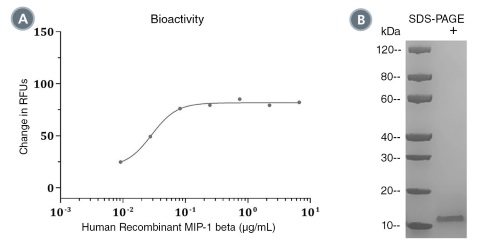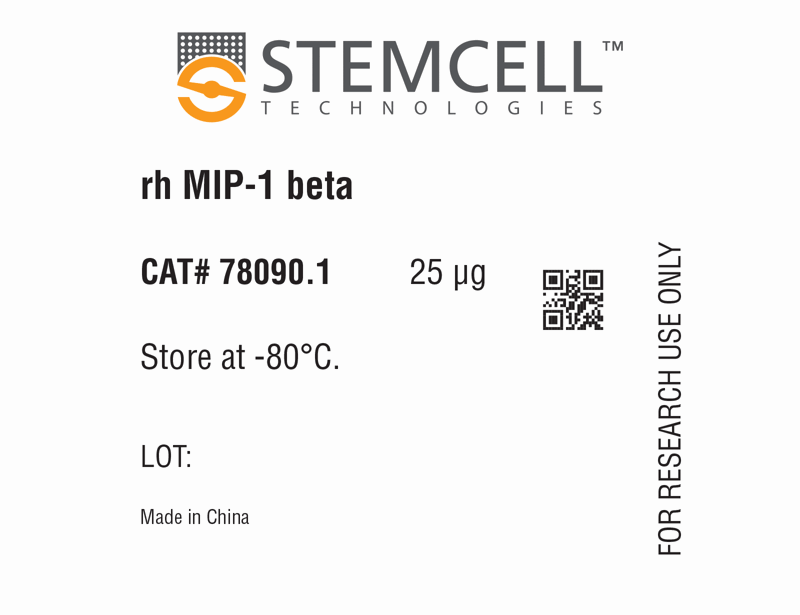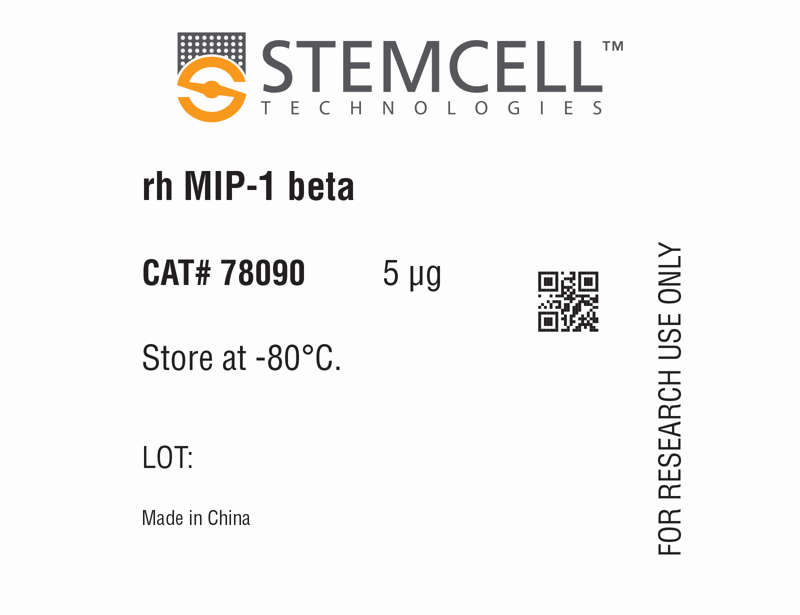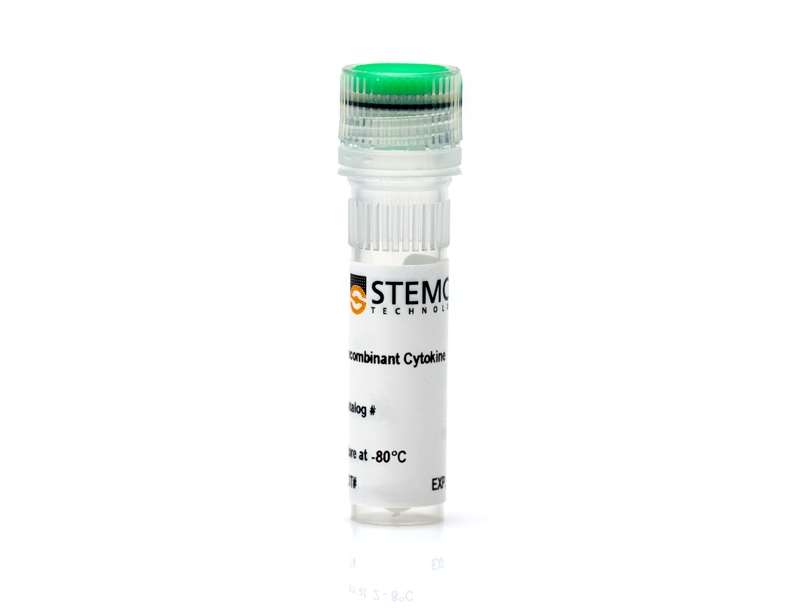Human Recombinant MIP-1 beta (CCL4)
Macrophage inflammatory protein-1 beta
概要
Macrophage inflammatory protein-1 beta (MIP-1 beta), also known as CCL4, is a member of the CC family of chemokines and is most closely related to CCL3 or MIP-1 alpha. MIP-1 beta is predominantly synthesized by activated CD8+ T cells, specifically the perforin-low memory CD8+ T cells (Kamin-Lewis et al.). MIP-1 beta signals through CCR5, which is the major coreceptor required for entry of certain strains of HIV-1 into permissive cells, and it is known that HIV-1-specific CD8+ T cell clones that exhibit cytotoxic T lymphocyte (CTL) activity secrete MIP-1 beta upon encountering sensitized target cells (Menten et al.). MIP-1 beta attracts a variety of immune cells to sites of microbial infection. In vitro experiments show that human MIP-1 beta tends to attract CD4+ T lymphocytes, preferentially of the naïve (CD45RA) phenotype (Schall et al.). In addition to its chemotactic functions, MIP-1 beta induces the release of proinflammatory cytokines, mast cell degranulation, and NK cell activation (Schall et al.). It has been shown that there is an increased expression of MIP-1 beta in CD8+ and CD4+ T cells at the site of inflammation in sarcoidosis patients (Barczyk et al.).
Subtype
Cytokines
Alternative Names
ACT-2, Immune activation protein 2, LAG-1, Lymphocyte activation gene 1 protein, MIP-1b, Protein H400, SCYA2, SCYA4, Small-inducible cytokine A4, T-cell activation protein 2
Cell Type
B Cells, Dendritic Cells, Mesenchymal Stem and Progenitor Cells, Monocytes, NK Cells, Other, T Cells, T Cells, CD4+, T Cells, CD8+
Species
Human
Area of Interest
Immunology, Stem Cell Biology
Molecular Weight
7.6 kDa
Purity
≥ 95%
技术资料
| Document Type | 产品名称 | Catalog # | Lot # | 语言 |
|---|---|---|---|---|
| Product Information Sheet | Human Recombinant MIP-1 beta (CCL4) | 78090, 78090.1 | All | English |
| Safety Data Sheet | Human Recombinant MIP-1 beta (CCL4) | 78090, 78090.1 | All | English |
数据及文献
Data

(A) The biological activity of Human Recombinant MIP-1 beta (CCL4) was tested by its ability to mobilize Ca2+ in CHO-K1/Gα15/hCCR5 cells (human Gα15 and human CCR5 stably expressed in CHO-K1 cells). Ca2+ mobilization was measured using a fluorometric assay method. The EC50 is defined as the effective concentration of the growth factor at which Ca2+ mobilization is at 50% of maximum. The EC50 in the example above is less than 0.1 μg/mL. (B) 1 μg of Human Recombinant MIP-1 beta (CCL4) was resolved with SDS-PAGE under reducing (+) conditions and visualized by Coomassie Blue staining. Human Recombinant MIP-1 beta (CCL4) has a predicted molecular mass of 7.6 kDa.



